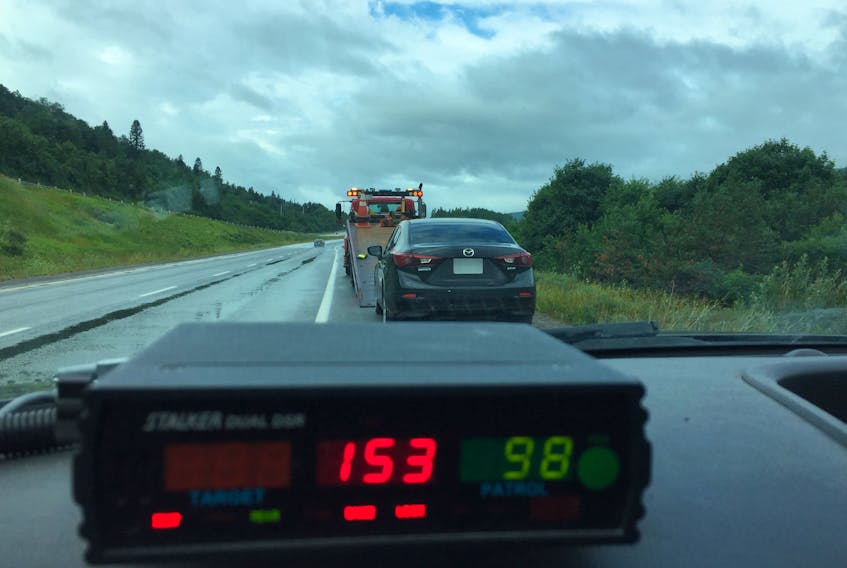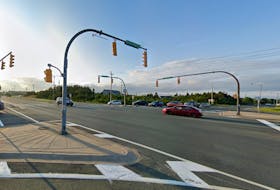DEER LAKE — With almost daily media reports of traffic stops resulting in vehicle seizures and charges for driving without a licence, registration or insurance, it may seem like an unusual summer.
But Sgt. Terry Foster of the RCMP’s Traffic Services West says it's probably not much different than last summer, though he didn’t have statistics on hand.
The traffic unit is based out of the RCMP’s Deer Lake Detachment and covers an area from Port aux Basques to St. Anthony and east to Baie Verte Junction.
What there has been more of, Foster said, is seizures of vehicles and vehicles travelling at high speeds.
When the unit is on the road its focus is on the leading causes of collisions — impaired driving, aggressive driving (including speeding), seatbelts, distracted drivers using cellphones and tinted windows.
“People need to be cognizant of everybody’s safety,” said Foster. “The No. 1 concern when you get behind a wheel should be your safety and the public safety, whether that’s pedestrians or whether that’s other motorists, and everybody should be driving in compliance with the laws as set out by the Newfoundland and Labrador government under the Highway Traffic Act and some of the other related statutes to ensure that they get to their destination in a safe manor, because collisions are avoidable.”
When it comes to high speeds Foster said some of the ones they’ve recorded are “pretty shocking,” with the highest speed encountered by the unit this year being 173 kilometres per hour.
“That’s very excessive and it’s a major public safety concern, too.”
Pursuing vehicles at those speeds is generally only done in relation to very serious criminal code offences.
But Foster has a warning for those who don’t stop. Police vehicles are equipped with onboard cameras and the entire encounter is recorded.
“If you decide to flee from police, what might have been a simple speeding ticket or even a more serious traffic infraction like no insurance, now you’ve committed a criminal offence — flight from police.”
Foster said there’s no particular time of the day that offences occur, nor is there any particular location that may be worse than others.
Last weekend three incidents on the Northern Peninsula resulted in vehicles being seized and impounded.
In one, an Alberta man, whose vehicle was towing a trailer with no taillights near Rocky Harbour, was charged with driving without a licence. An Anchor Point man driving 132 km/h in an 80 km/h zone north of Wiltondale and a Norris Point resident clocked going 144 km/h in 80 km/h zone in the South East Hills area were both issued speeding tickets and had their licences suspended for seven days.
And in the past two months the traffic unit and members from the detachment have apprehended seven impaired drivers.
Foster said officers hear all kinds of excuses when they make the traffic stops.
“We’re finding it very concerning that we’re stopping people and they have no idea what speed they’re travelling at. One of the No. 1 rules of driving on the road is watch your speedometer.”
He suggests that in good weather, in the daylight and in moderate or light traffic, cruise control is an effective way of monitoring speed and ensuring drivers are in compliance with speed zones.
As for not having insurance, registration or a driver’s licence, Foster said there are no excuses and people can’t say it’s because of COVID-19.
“Insurance companies haven’t really changed the way they’re doing business. It’s still just a phone call.”
Licence plate, driver’s licence and registration renewals can be done online and Foster said officers will take into consideration delays at Motor Vehicle Registration due to COVID-19, especially when licences and registration have only been expired for a few days.
He said the people experiencing the most difficulty are those bringing new vehicles to the province, which requires an actual visit to Motor Vehicle Registration.
Twitter: WS_DianeCrocker









